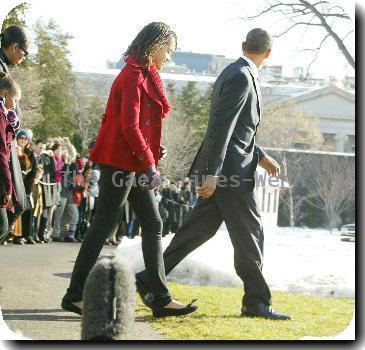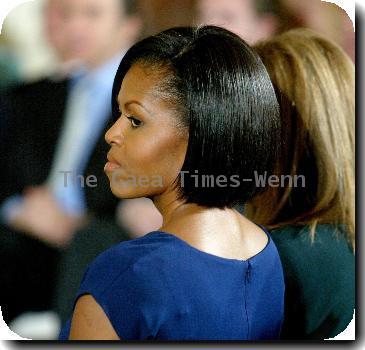Coats the victor in Indiana GOP primary, voters back incumbents in NC, Ohio
By Liz Sidoti, APTuesday, May 4, 2010
Coats wins Ind. primary; NC, Ohio back incumbents
INDIANAPOLIS — Voters in North Carolina and Ohio kept their incumbents and those in Indiana turned to an old Capitol Hill hand — Republican Dan Coats — in Tuesday’s primaries despite the nation’s bottom-barrel support for Congress and frustration with the Washington establishment.
This fall, Coats — who was recruited by the National Republican Senatorial Committee — will face Democrat Brad Ellsworth, whose nomination is assured. The candidates are seeking the seat held by retiring Democratic Sen. Evan Bayh.
Coats, 66, retired from the Senate in 1998, has worked as a lobbyist and was U.S. ambassador to Germany under President George W. Bush. He overcame spirited challenges from four, including state Sen. Marlin Stutzman, a tea party favorite who was endorsed by South Carolina Sen. Jim DeMint, and former Rep. John Hostettler, who had the support of one-time presidential candidate Rep. Ron Paul, R-Texas.
Democrats quickly piled on, calling Coats a “deeply flawed candidate” and casting him as a Washington insider beholden to special interests.
Turnout was exceptionally light in Ohio and North Carolina, a possible indication that the anger fueling voters across the country over economic woes, persistently high unemployment and Congress itself wasn’t translating into votes — and, perhaps, the limited influence of the conservatives and libertarians who make up the fledgling tea party coalition.
“We rebuilt the pyramids and recarved the Grand Canyon in our spare time,” joked poll worker Dina Roberts, who saw only 147 voters in nearly 12 hours at her downtown Indianapolis polling site.
By the end of the day, however, the Republican turnout in the Senate primary was the highest this decade, including presidential election years.
In all three states, candidates backed by Democratic and Republican leaders in Washington squared off against challengers drawing their support from elsewhere. While it’s difficult to draw concrete conclusions about the state of the country from just a few races, the results gave some idea of whether the national parties still can influence rank-and-file supporters.
At the very least, the outcome of Tuesday’s primaries — the first set of contests in the two months since Texas held its March primary — set the stage for November’s congressional matchups and provided early insights about voter attitudes ahead of this fall’s elections.
In one notable House race in Indiana, 14-term Republican Rep. Dan Burton — Indiana’s longest-serving congressman — struggled but managed to fend off six challengers for his 5th Congressional District seat.
Elsewhere in the state, Rep. Mark Souder easily won the GOP nomination in the 3rd District after a nasty campaign; Souder will face Democrat Tom Hayhurst in the fall.
In Ohio, Lt. Gov. Lee Fisher, a former Ohio attorney general backed by Democrats in Washington, withstood a challenge from Secretary of State Jennifer Brunner to capture the party’s Senate nomination. The two ran to fill the seat of retiring Republican Sen. George Voinovich. Fisher will face former Rep. Rob Portman, the budget director and trade representative under George W. Bush.
In North Carolina, first-term Republican Sen. Richard Burr, whose public approval numbers are lower than expected, easily won his party’s nomination. Democrats won’t decide his general election opponent until a June 22 runoff as none of the six candidates achieved the 40 percent of the vote necessary to win outright.
The runoff will pit Secretary of State Elaine Marshall against Cal Cunningham, a former state senator who is the favored choice of the Democratic Senatorial Campaign Committee.
In the 6th Congressional District, Republican Rep. Howard Coble, who first won his seat in 1984, easily beat five opponents. And in the 8th District, first-term Democratic Rep. Larry Kissell survived a primary challenge from one of his former campaign volunteers. Nancy Shakir ran against Kissell in part because of his opposition to President Barack Obama’s health care law.
North Carolina’s director of the State Board of Elections projected turnout to be slightly above 2006 levels, when only 12 percent of voters cast a primary ballot. Said elections chief Gary Bartlett: “I was hoping for more.”
____
Sidoti reported from Washington. Associated Press writer Mike Baker in Raleigh, N.C., and Julie Carr Smyth in Columbus, Ohio, contributed to this report.
Tags: Barack Obama, Campaigns, Indiana, Indianapolis, North America, North Carolina, Ohio, Primary Elections, Texas, United States, Voting Districts



